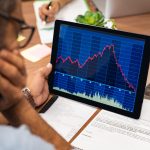By Christopher Cervantes, RFP

THE coronavirus disease 2019 (Covid-19) pandemic took many people by surprise in many ways. Many feel anxious about and overwhelmed by it, and quite understandably so. To ease their minds, some scour available information about it on traditional media or the internet. They hope to see the proverbial light at the end of this tunnel.
I’m not a big believer of economic predictions. But it must be said that many think predictions, whether determined through charts or crystal balls, are bound to come true.
Try analyzing the predictions of hundreds of pundits; some of them said Ebola would end the world, while others foresaw 2020 as a very auspicious year.
I don’t particularly appreciate hearing people saying they know what would happen the next day or week, or even this year, for it clogs the pipes of creativity.
But there is a simple way to know whether a prediction is correct. It involves a simple phrase we all hear: “This time, things will be different.”
We all know that phrase is always wrong; it will never be different. Things stay the same.
Consider: In 1972, microbiologists Macfarlane Burnet and David White predicted that infectious diseases in the future would be very dull, but history tells us differently. From AIDS (acquired immunodeficiency syndrome), Ebola, SARS (severe acute respiratory syndrome) and now Covid-19, contagious diseases continue to threaten human populations and disrupt their usual activities.
Many financial planners believe Covid-19 would change people’s financial habits. But why didn’t this happen in previous epidemics? For a few months or even a couple of years, some might embrace frugal living. But don’t forget that the world of consumerism is not sitting this down. It is just formulating the right marketing gimmick that would make it easy for you to click that “Add to cart” button.
It is no longer a question of whether a pandemic like this would still break out in the future. No matter how advanced our science might be in the future, the things that would challenge humanity will never disappear. Even in the world of personal finance, things will stay the same.
If you witnessed how difficult it is to be in this situation unprepared, being prepared for the next crisis would be wise.
On social media, the issue of the Social Amelioration Program (SAP) is getting attention.
But for those who listened to the exhortation of having an emergency fund, life is good so far. They have the luxury of spending their time watching Netflix while waiting for the next job or business opportunity. To those caught off-guard, starting to grow your rainy-day fund should be your first baby step in recovering from the crisis.
Warren Buffet and other wealthy people advised other people not to rely on a single stream of income. You do understand that, sometimes, loyalty to the company you work in would only get you a plaque during its anniversary, but not financial security during a crisis. Yes, some companies are concerned for their employees, but keep in mind that the people behind them are human, too. They are also worried. And when they are, the first that they want to save are themselves.
So start doing an inventory of your talents and look for the opportunity to monetize them.
Yes, it would help if you already have a secure and high-paying day job, but you need a lifesaving stream of income if your company loses its buoyancy.
Another reality that this pandemic showed us is that our home is not just a place to sleep.
People advocating for work-life balance have bombarded us with numerous reasons on why we should not bring our work home. Now our eyes are opened to a new way of making money without leaving the comfort of our homes. Work and life are not separate entities.
Would things be different after this pandemic? Maybe, maybe not. But I do believe that it would result in two things.
First, popular money behavior and thinking in the past would remain so, at least in the foreseeable future. For some, money is power, and showing it means they have power. But for others, that money offers the opportunity to help others.
And second, what was popular in the past would improve. Maybe money has a deeper meaning for you other than showing your power and opportunity to help others. Maybe we are searching for wealth at the wrong place. Perhaps, this would lead us to think that we are the “seed money.”







